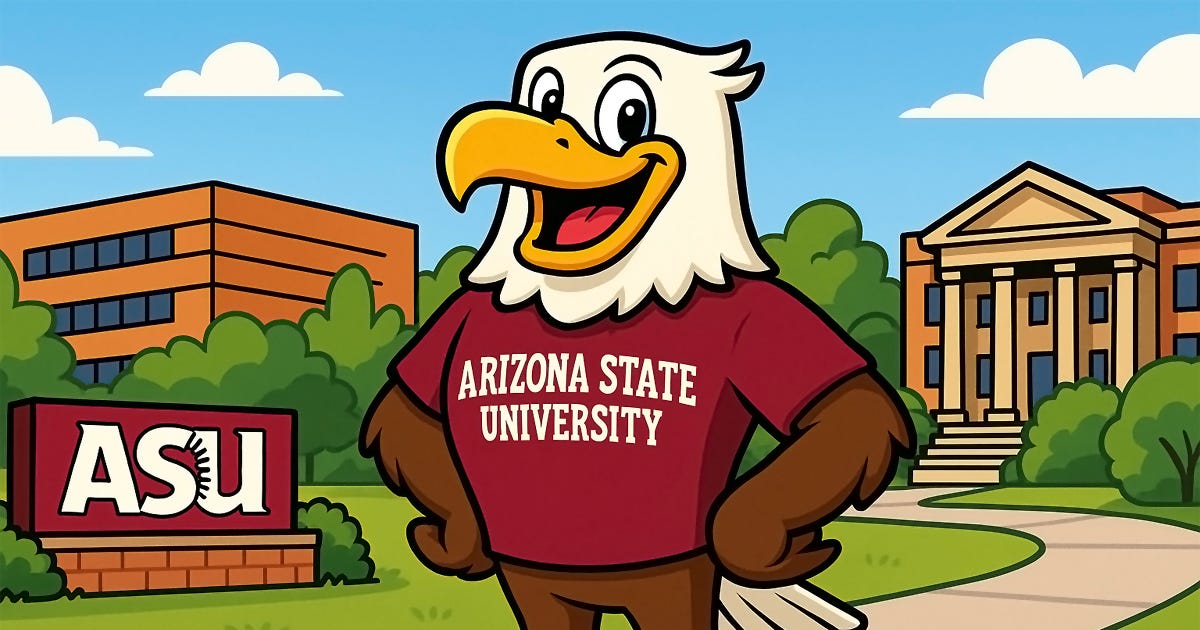Curating the Perfect College Class 🎓🦅
Diversity is not a bad thing
Applicants and their admittedly biased parents are right to want certain information and outcomes from the college admissions process. Colleges have certain wants as well, along with outcomes they absolutely need. But first the news…
COLLEGE NEWS
Dean for a day: Ever think that you could run a college better than its current leaders? Play the ranking game to get a taste of the multivariate frustration that higher ed execs dine on daily. Chances are you won’t quit your day job.
Academic aesthetics: Does where you study matter to you more than what you study? Then you’ll love the Architectural Digest list of The 64 Most Beautiful College Campuses in America.
Research for a stronger America: At a time when the current administration is cutting federal funding for university-based research, some higher ed leaders feel compelled to inform the public about what will be lost. The president of Arizona State University took his turn at the mic.
BIG IDEA
The calculations behind college admissions have always been somewhat opaque, especially as selectivity rates have skyrocketed among the most popular schools. But we’re not so far removed from a time when students with certain grades and test scores were almost assured entry even to Ivy League institutions. What changed?
Institutional priorities.
When the term institutional priorities is bandied about, thoughts often fly to charged concepts like quotas. However, reasonable observers can recognize why colleges consider more than just grades and test scores when considering a freshman class. The admissions process is tantamount to curating a guest list for a great party–diversity is highly desirable to spark serendipitous encounters and unexpected conversations. Now imagine the party lasts four or more years. Bringing together a passionate group of academics, athletes, artists, activists, and aficionados from all backgrounds and walks of life contributes to a vibrant culture of learning and personal growth.
Obviously, every school should commit to enrolling students who can meet its specific academic standards and thrive in its unique environment. College readiness matters. But even after those factors are considered, any selective school will still have many more applicants than available seats. At that point, institutional priorities must prevail–teams need athletes, clubs need members, and costs need to be met. Last but certainly not least, every school seems to want more applications and higher rankings.
What do students want? Clarity about how realistic individual chances for enrollment would be nice, as would greater transparency about optional and mandatory elements of the application process. But students also want community, both in terms of school spirit at large and in ways related to individual interests and identity.
Clearly, students don’t just select schools based on academic rigor. College visits focus on campus fit and feel, not how quiet the library is. Students seek communities where they will both fit in and find more of themselves as emerging adults. Diversity may be a discredited term in certain circles, especially as the U.S. government seeks to dismantle diversity, equity and inclusion programs, but students from every background want to see peers like them on campus. They want to feel welcome and accepted.
In the recent past, higher education institutions asserted the right to individually establish the degree to which college entrance exams factored into specific admissions decisions, and even professionals who were accused of making money off tests agreed that test optional policies were common sense for many schools. The discussion about the role of test scores continues to evolve at a time when every other aspect of college admissions is under scrutiny. Those of us outside an institution's admissions office can’t possibly know all of the priorities being juggled as applications are evaluated. We do know, however, that a school’s future success (or survival) depends on meeting those priorities both for themselves and for each individual attendee. Consider the challenge of curating the perfect incoming class before rushing to tell colleges how they should operate.
💲💲College bound students: You don’t need perfect grades or test scores to earn tons of scholarship dollars. Find out how to get that money.💲💲
NAME THAT SCHOOL
Do you think you know a lot about colleges? Try to guess this institution of higher education. (Find the answer at the end of the newsletter.)
When it was founded in 1889, its location wasn’t officially a state yet.
Famous for agricultural research and home to over 40 research and extension centers
Known for a unique indoor stadium with a barrel-arched wooden roof, used to host football, basketball, tennis, and concerts
Backs up to a 2,600-acre Experimental Forest, a living classroom for forestry students and outdoor lovers alike
The school’s mascot has the distinction of being named for an infamously destructive Germanic tribe
APPLICATION ACTION STEPS
🎓 Apply to the $35,000 VFW Voice of Democracy Contest.
🎓 Find out why more attempts often lead to higher ACT scores.
🎓 Explore 87 Excellent Small Colleges That Give Great Merit Aid
🎓 Unpack a thorough college testing plan for the HS class of 2027
HOTLINE
Do you have any burning questions to ask or want to share an issue, article, or resource our readers should know about? Dial up the College Eagle hotline through this easy form. We appreciate you!
NAME THAT SCHOOL ANSWER
Did you know that the University of Idaho has been the No. 1 Best Value Public University in the West for five years running. Go Vandals!




